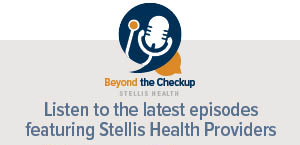Promoting Better Sleep
March is sleep awareness month. One way to promote better sleep is to breathe through your nose. How do you know you are doing so? Let’s dive into the benefits of nasal breathing, as well as tricks and tips you can use to ensure you are breathing through your nose, and getting restful, restorative sleep at night.
4 Reasons to Breathe out of Your Nose
1. Protection of Lungs and Airways
When compared with mouth breathing, there are countless benefits to breathing nasally. Air that is breathed in and out of your nose is warmed and moistened when entering and leaving your body. This protects your sensitive nasal tissues, as air is moistened when it passes through them. Humidified air helps protect the respiratory tract as well.
Airborne particles are also filtered out with nasal breathing. Nose hairs and mucus catch potentially harmful bacteria before entering the respiratory tract. This protects the body from illnesses like pneumonia.
Mouth breathing, of course, is necessary in certain circumstances. When you are ill or suffering from allergies and cannot breathe through your nose, mouth breathing is vital. Strenuous physical activity also requires mouth breathing so you can breathe more deeply, and provide higher levels of oxygen to the body.
2. Better Physical and Cognitive Performance
A highly beneficial aspect of nose breathing is it creates nitric oxide. Nitric oxide is a vasodilator, which helps expand blood vessels and improve blood circulation. This lowers blood pressure, improves physical performance, increases brain function, and helps fight erectile dysfunction. Paying attention to this little molecule will pay off in the future to provide increased energy levels.
3. Oral Health
Nose breathing is great for oral health. Saliva washes away bacteria and keeps the protective membranes in the mouth healthy. Ask your dentist about your oral health and the benefits of nose breathing.
When you breathe through your mouth, it dries up the saliva, which can leave your body susceptible to bacteria. You need to watch out for illnesses like gingivitis and periodontitis, as well as cavities, receding gums, oral decay, and halitosis (bad breath). Something as simple as keeping the mouth closed can protect your oral health immensely.
4. Regulation of Oxygen and CO2 Levels
Breathing through the nose provides optimal oxygen levels to the blood and regulates oxygen and carbon dioxide levels in the body. When you breathe through your mouth, you actually exhale too much carbon dioxide. This is due to taking large breaths and having a higher rate of breathing. On the other hand, nose breathing helps to maintain homeostasis (balance) in the exchange of oxygen and carbon dioxide.
What Do I Do if I Am a Mouth Breather?
While awake, you can make a habit out of nose breathing. Athletes, yogis, and people who meditate all have practiced nasal breathing. Be aware during the day of breathing through your nose.

Being aware of your breathing, however, is more difficult to do when you are asleep. Read on to learn tips on how to regulate your breathing at nighttime.
Mouth Taping
Forming a habit of nasal breathing during the day is doable. However, how do you form the same habit while sleeping?
Hypoallergenic strips can be used to tape your mouth while you sleep. It may sound strange to “tape your mouth shut,” but it is highly beneficial in getting healthy, restful sleep, as well as protecting your oral hygiene and your airways. The strips are easy to use and help keep your lips sealed in a secure, yet comfortable way.
Mouth taping has its origins in the Buteyko Method, which was created by a Russian doctor named Konstantin Pavlovich Buteyko. The Buteyko Method studies the connection between the way we breathe and overall health. The method focuses on “functional breathing,” or nasal breathing. Practitioners claim that nasal breathing improves a number of health issues, including anxiety, ADHD, insomnia, asthma, and more. For more information on Buteyko breathing exercises, check out their site.
Meet With a Nasal Breathing Specialist
When difficulty sleeping is at its worst, oftentimes it is because of problems with your ears, nose or throat. Swollen glands, tonsils, or adenoids can severely hinder nasal breathing. Because it becomes impossible to breathe easily through your nose, you may be compelled to breathe through your mouth when you are having ear, nose, or throat problems. Chronic ear infections can also adversely affect your respiratory health.
Learn more about the ENT Specialists (Ear Nose and Throat Specialist) on the Stellis Health website if you think you or a loved one may suffer from constricted breathing due to swollen tonsils or adenoids.
Sources:






